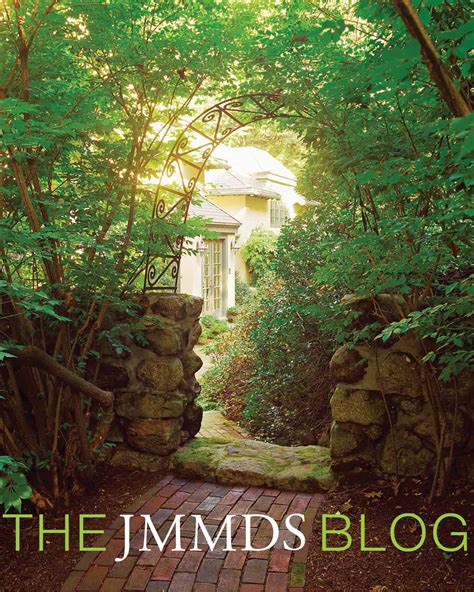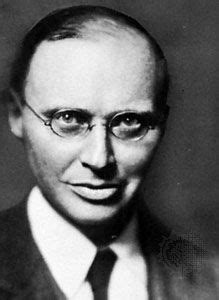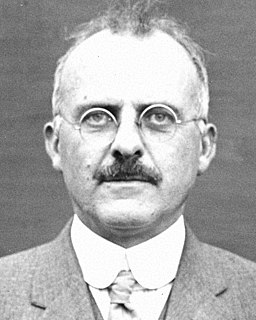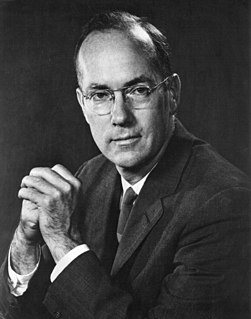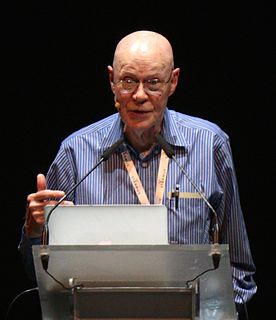A Quote by Charles Darwin
Our faculties are more fitted to recognize the wonderful structure of a beetle than a Universe.
Related Quotes
From whence it is obvious to conclude that, since our Faculties are not fitted to penetrate into the internal Fabrick and real Essences of Bodies; but yet plainly discover to us the Being of a GOD, and the Knowledge of our selves, enough to lead us into a full and clear discovery of our Duty, and great Concernment, it will become us, as rational Creatures, to imploy those Faculties we have about what they are most adapted to, and follow the direction of Nature, where it seems to point us out the way.
There are two questions that get to us all: Are we alone in the Universe? And, where did we come from? For me, science provides a much more satisfactory way to seek answers than does any religion I've come across. With that said, the universe is mysterious and wonderful. It fills me with reverence for nature and our place among the stars; our place in space.
I recognize this in my writing process. A consistent writing structure opens the door to amazing insights. I recognize the truth of this in my daily habits. When I set my keys in the place I, with practice, always set my keys... I do not lose them. In many instances an ordered external structure can be an invitation for an extraordinarily unfettered, creative and unbounded inner structure.
The laws governing the universe can be made interesting and wonderful to the child, more interesting even that things in themselves, and he begins to ask: What am I? What is the task of man in this wonderful universe? Do we merely live here for ourselves, or is there something more for us to do? Why do we struggle and fight? What is good and evil? Where will it all end?
It is possible that our race may be an accident, in a meaningless universe, living its brief life uncared for, on this dark, cooling star: but even so - and all the more - what marvelous creatures we are! What fairy story, what tale from the Arabian Nights of the jinns, is a hundredth part as wonderful as this true fairy story of simians! It is so much more heartening, too, than the tales we invent. A universe capable of giving birth to many such accidents is - blind or not - a good world to live in, a promising universe. . . . We once thought we lived on God's footstool, it may be a throne.
It is certainly a wonderful, a brain-staggering conception... that our own stellar universe may be but one of hundreds of thousands of similar universes... Familiarity with these mighty concepts most certainly does not breed contempt, does not dull our awe at the mightiness of the universe in which we play so small a part. It is very doubtful if any of those who are seriously studying the heavens ever lose their feeling of reverence for this supremely wonderful universe and for Whoever or Whatever must be behind it all.
Science, with its experiments and logic, tries to understand the order or structure of the universe. Religion, with its theological inspiration and reflection, tries to understand the purpose or meaning of the universe. These two are cross-related. Purpose implies structure, and structure ought somehow to be interpretable in terms of purpose.
Radio Astronomy has added greatly to our understanding of the structure and dynamics of the universe. The cosmic microwave background radiation, considered a relic of the explosion at the beginning of the universe some 18 billion years ago, is one of the most powerful aids in determining these features of the universe.
Siphonophores do not convey the message a favorite theme of unthinking romanticism that nature is but one gigantic whole, all its parts intimately connected and interacting in some higher, ineffable harmony. Nature revels in boundaries and distinctions; we inhabit a universe of structure. But since our universe of structure has evolved historically, it must present us with fuzzy boundaries, where one kind of thing grades into another.
If our local, observable universe is embedded in a larger structure, a multiverse, then there's other places in this larger structure that have denizens in them that call their local environs the universe. And conditions in those other places could be very different. Or they could be pretty similar to what we have here.




